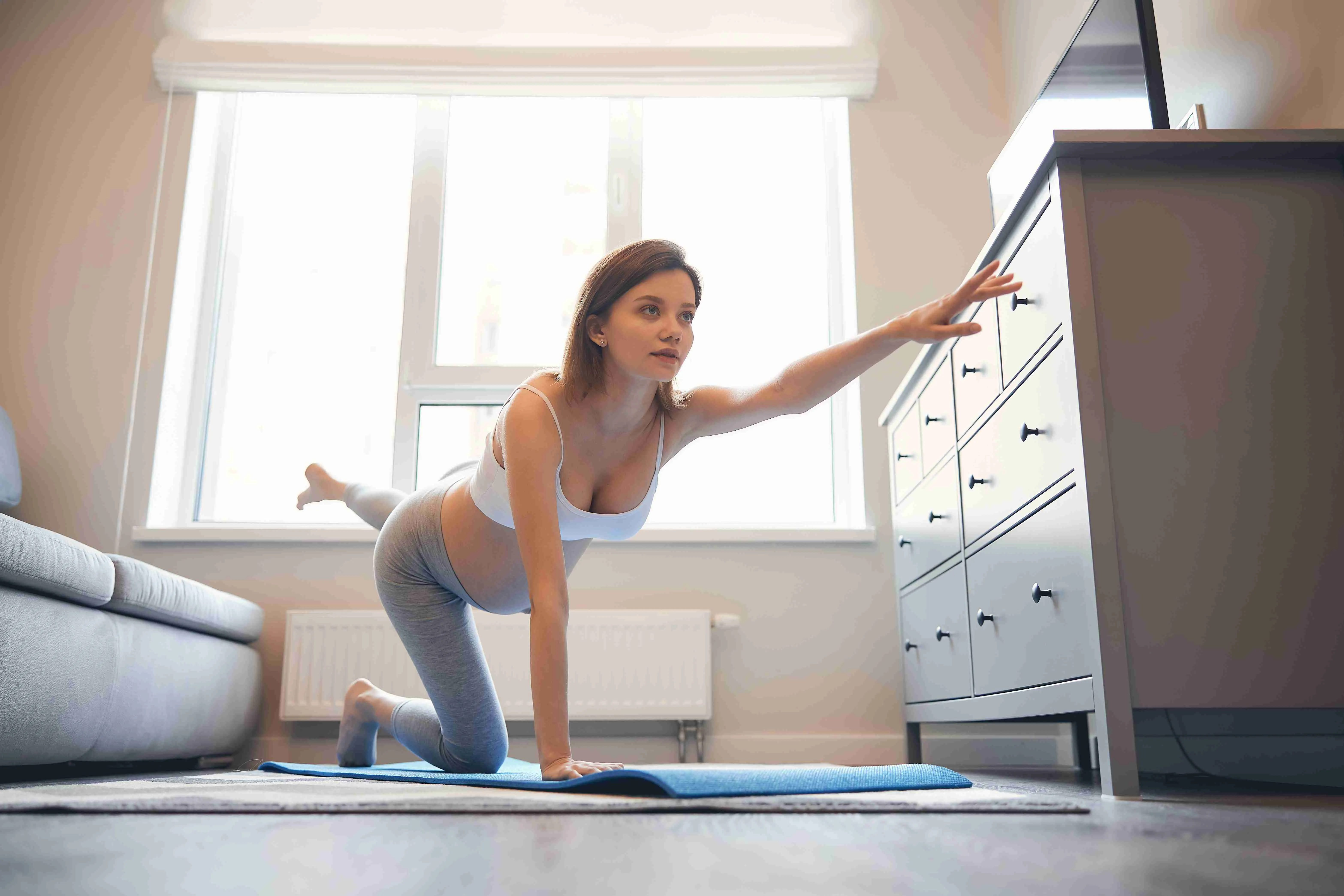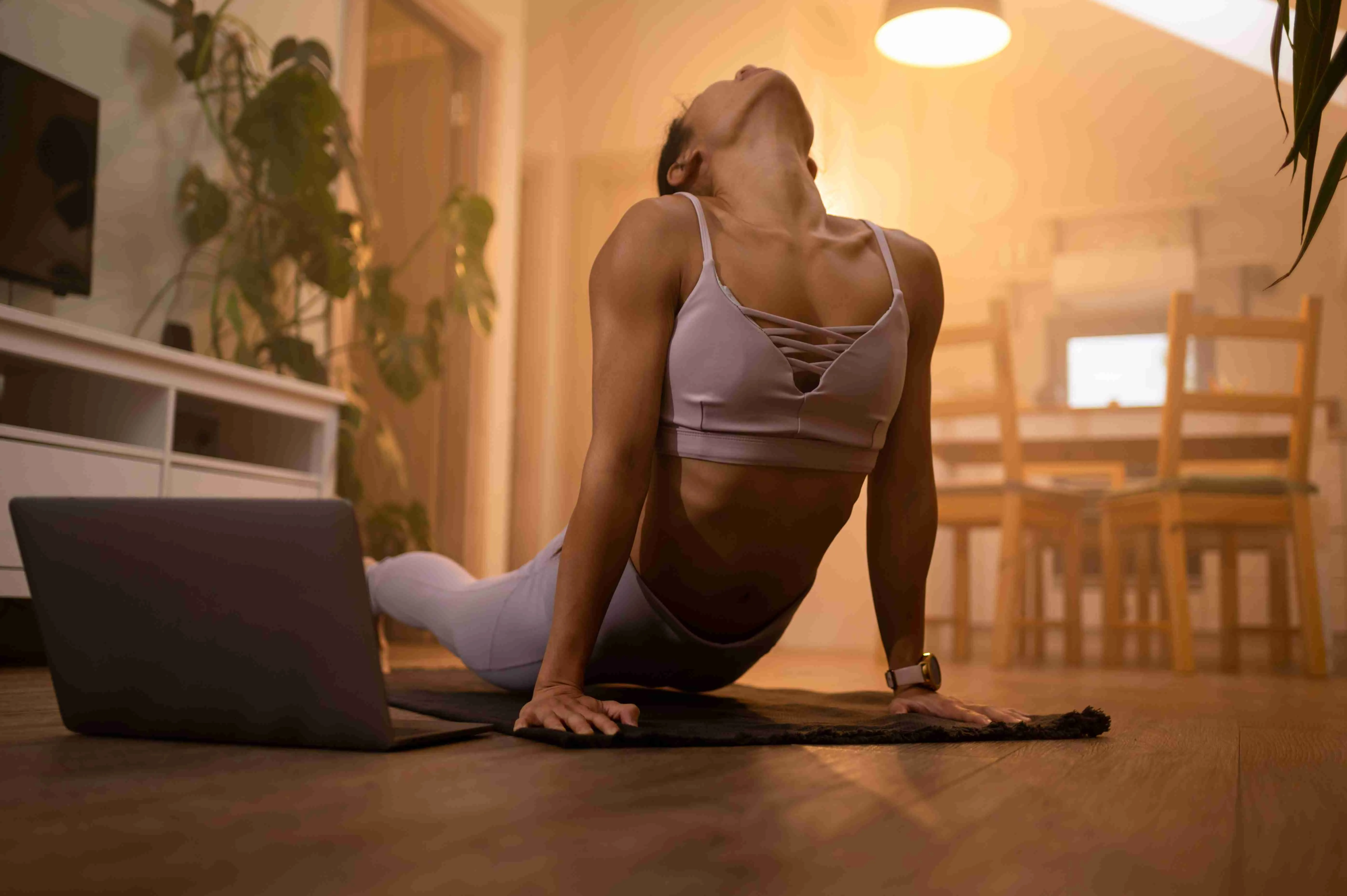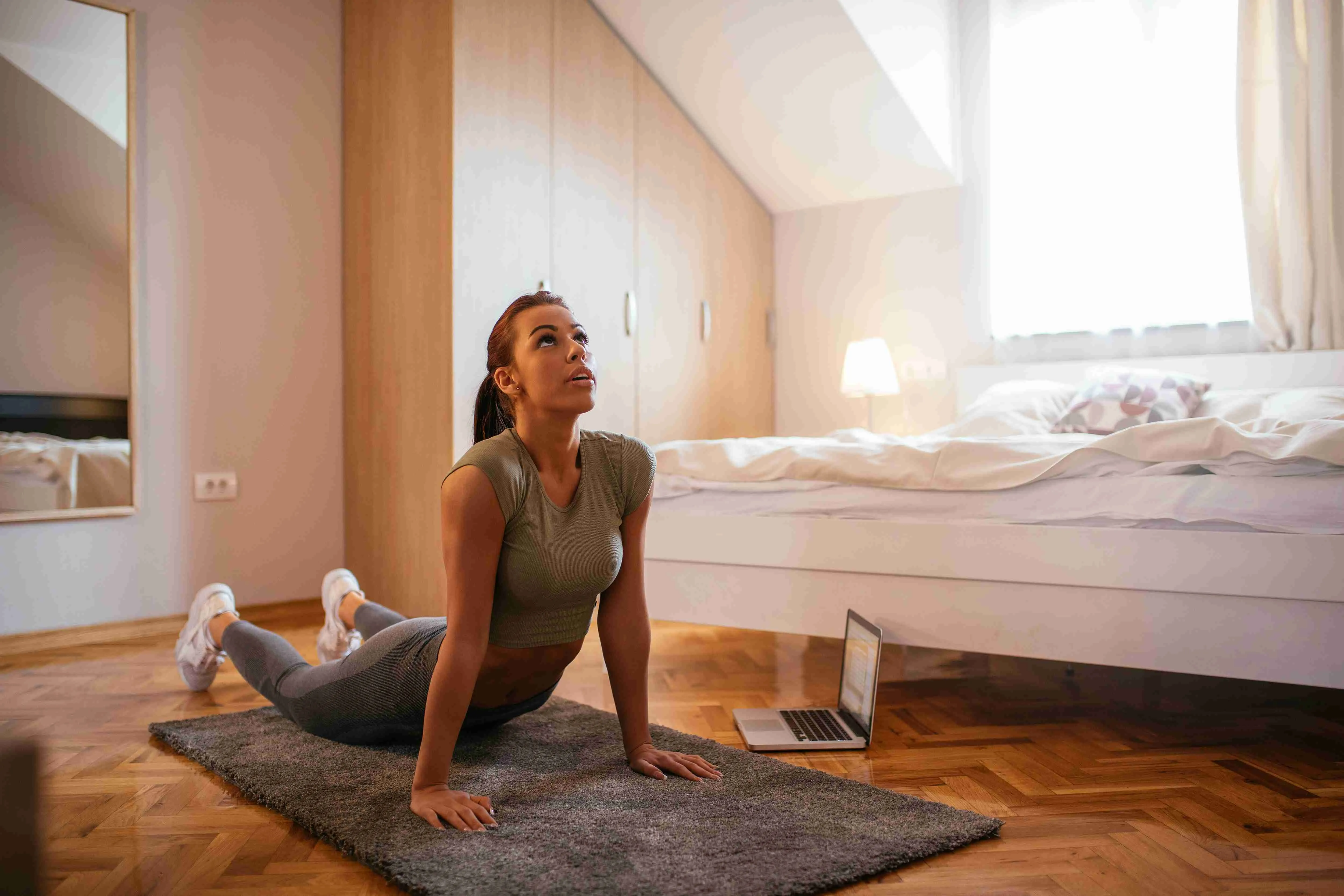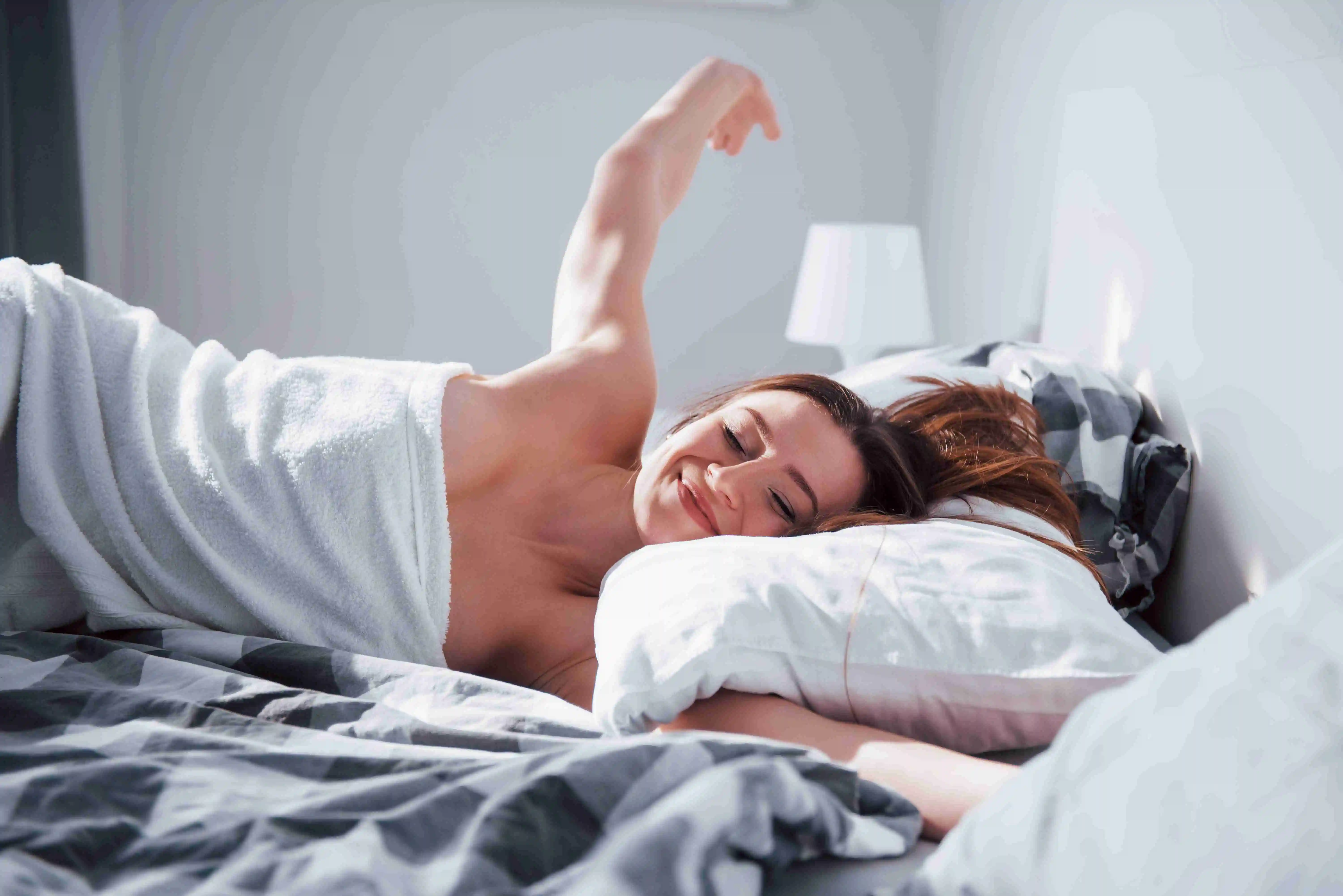Exercise has long been known to have numerous benefits for our physical health and mental well-being. However, we often overlook its impact on sleep.
Although there’s a very strong connection between regular exercise and sleep quality, it’s important to know more about how to benefit the most from exercising because, in some cases, exercising could be detrimental to sleep quality.
The Connection Between Exercise and Sleep Quality
There’s a strong connection between exercise and improved sleep patterns. Engaging in regular physical activity helps to regulate our body's internal clock, making it easier to fall asleep and stay asleep throughout the night. It also helps to reduce anxiety and stress, two common factors that can disrupt sleep.
Furthermore, exercise enhances our deep sleep, a crucial component for our body's rejuvenation and restoration.
Why does exercise help us sleep better?
Regular exercise has numerous benefits for both physical and mental health, as the relationship between sleep and exercise is very strong and it can significantly enhance the quality of sleep.
Reduces Stress and Anxiety
Engaging in physical activity can help reduce stress and anxiety, which are common obstacles to a restful night's sleep. Exercise promotes the release of endorphins, which are known as the body's natural mood elevators.
Regulate Circadian Rhythm
Exercise also helps regulate the body's circadian rhythm. The circadian rhythms are the internal clock that regulates the sleep-wake cycle. By engaging in regular physical activity, you can help synchronize your circadian rhythm with your natural sleep patterns.
Promotes Physical Fatigue
Expending energy during exercise is how exercise improves sleep, because when we engage in physical activity, our bodies become tired, which makes it easier for us to fall asleep and stay asleep throughout the night.
Balances Neurotransmitters
Exercise also affects our brain chemistry and neurotransmitter release. Neurotransmitters such as serotonin and dopamine are responsible for regulating our mood and promoting feelings of relaxation and well-being. Exercise enhances the production and release of these neurotransmitters.
Decreases Insomnia
Since physical activity and sleep have a tight connection, regular exercise has a positive impact on sleep quality, leading to a decrease in insomnia symptoms. Engaging in physical activity helps to regulate the body's internal clock, which plays a crucial role in regulating sleep-wake cycles.
Alters your Body Temperature
During physical activity, your body temperature rises, and after you finish exercising, it gradually starts to cool down. This drop in body temperature signals to your body that it's time to sleep, as it mimics the natural cooling process that occurs during the evening hours.
When to Exercise for Optimal Sleep
Numerous benefits of exercise directly relate to the quality of sleep; however, different times of the day may have different effects on the body and the overall quality of sleep.
Morning Exercise

Benefits
- Regulate Circadian Rhythm: One of the main advantages is that it helps to regulate the body's internal clock, also known as the circadian rhythm. By engaging in physical activity in the morning, it signals to the body that it is time to be awake and alert. This can help individuals fall asleep more easily at night and improve the overall quality of their sleep.
- Promotes Relaxation: Morning exercise increases the production of serotonin, a hormone that promotes relaxation and happiness, which can further enhance sleep.
Drawbacks
- Increases in Cortisol Levels: A potential drawback is that it can lead to an increase in cortisol levels, a hormone associated with stress. While cortisol is typically highest in the morning, engaging in intense exercise can cause a significant spike in cortisol levels. This can potentially disrupt sleep patterns and make it more difficult to fall asleep at night.
- Waking Up Early Could Be Challenging: Some individuals may find it challenging to wake up early enough to engage in a morning workout, especially if they have commitments or responsibilities that require them to stay up late.
Afternoon Exercise

Benefits
- Promote Better Sleep: The afternoon for some people is the best time to exercise for sleep. Moderate-intensity aerobic exercise in the late afternoon can increase the amount of deep sleep experienced during the night, leading to improved overall sleep quality
- Reduce Stress Levels: Afternoon exercise can help to reduce stress levels and promote relaxation, making it easier to fall asleep and stay asleep throughout the night.
Drawbacks
- Could Interfere With Night Sleeping: Exercising too close to bedtime can have a stimulating effect on the body and make it more difficult to fall asleep. This is because exercise raises body temperature and increases heart rate, which can interfere with the body's natural sleep processes.
- Could Cause Restlessness: Some people may experience difficulty winding down after an afternoon workout, leading to feelings of restlessness or insomnia.
Evening Exercise

Benefits
- Reducing Anxiety and Stress Levels: Exercise stimulates the release of endorphins, which are natural mood enhancers, helping to alleviate stress and anxiety that may have accumulated throughout the day. This can lead to a more relaxed state of mind and a better ability to fall asleep and stay asleep throughout the night.
- Increasing Body Temperature: Evening exercise also raises body temperature, and as the body cools down after exercise, it signals to the brain that it's time to sleep. This promotes a more restful and deep sleep, allowing individuals to wake up feeling refreshed and rejuvenated in the morning.
Drawbacks
- Increases Alertness Close to Bedtime: Exercising vigorously too close to bedtime can also increase alertness and make it harder to fall asleep. Therefore, it is important to find the right balance and timing for evening exercise to optimize sleep quality.
The Impact of Different Types of Exercise on Sleep

Regular exercise has numerous benefits for overall health, including improved sleep quality, and different types of exercise can have varying impacts on our sleep patterns.
Aerobic Exercise
Aerobic exercise, such as running, cycling, or swimming, is known to have a positive effect on sleep. Engaging in moderate-to-high-intensity aerobic exercise during the day can help regulate the body's internal clock and promote better sleep at night.
This type of exercise increases the release of endorphins, which can help reduce stress and anxiety that may interfere with sleep.
Strength Training
Strength training exercises, on the other hand, may have mixed effects on sleep. While strength training can be beneficial for overall health and muscle growth, it may also increase alertness and adrenaline levels in the short term.
This can make it more difficult to fall asleep immediately after a strength training session. However, regular strength training improves sleep quality over time.
Mind-Body Exercises
Mind-body exercises, such as yoga and tai chi, have a positive impact on sleep quality. These exercises focus on deep breathing, relaxation techniques, and mindfulness, which can help reduce stress and promote a sense of calmness.
Mind-body exercises can also help regulate the body's stress response system, leading to improved sleep patterns.
Exercise and Sleep Disorders
Exercise has a positive impact on sleep quality and can help alleviate certain sleep disorders, such as insomnia and sleep apnea.
Insomnia
Regular exercise can improve insomnia, which is characterized by difficulty falling or staying asleep. Engaging in physical activity during the day can help burn off excess energy and reduce anxiety, making it easier to fall asleep at night.
Additionally, exercise increases the amount of deep sleep, which is crucial for restoring and rejuvenating the body.
Sleep Apnea
Exercise can also benefit those with sleep apnea, a disorder in which breathing is repeatedly interrupted during sleep. Individuals with sleep apnea often recommend regular physical activity to contribute to weight loss. Losing weight can help reduce the severity of sleep apnea symptoms and improve overall sleep quality.
Furthermore, exercise can help strengthen the breathing muscles and improve lung function, leading to better breathing patterns during sleep.
Tips for Integrating Exercise Into Your Routine for Better Sleep

Integrating exercise into your routine is beneficial not only for your physical health but also for getting better sleep. But daily exercise could be a challenge for some people, so here are a few tips that could ease you into regular exercise.
Start Small
To start, it's important to begin small and gradually increase the intensity and duration of your workouts. This not only helps prevent injuries but also makes it easier to stick to a consistent exercise routine.
Whether it's a short walk around the block or a quick yoga session, starting small allows you to build a foundation and establish a habit.
Choose Activities You Enjoy
There's no point in forcing yourself to do exercises that you dislike, as this will only make it harder to stay motivated. Find physical activities that bring you joy and make you feel good. It could be dancing, swimming, cycling, or anything else that gets your body moving and your heart rate up.
By choosing activities that you enjoy, you'll be more likely to look forward to your workouts and incorporate them into your routine effortlessly.
Schedule It
Scheduling your exercise sessions is key to ensuring consistency. Treat your workouts as non-negotiable appointments with yourself. Mark exercise times in your calendar and stick to them like any other important commitment.
Creating a schedule eliminates the excuse of not having enough time or forgetting to exercise.
Exercise Outdoors
One effective tip is to engage in outdoor exercise. Exercising outdoors exposes you to natural light and fresh air, which can help regulate your body's internal clock and improve your sleep quality.
Whether it's going for a run, cycling, or simply taking a walk, outdoor exercise can be a great way to incorporate movement into your daily routine while enjoying the benefits of being outside.
Track Your Progress
You can track your progress using various methods, such as using fitness apps, wearable devices, or simply keeping a journal. You can track your exercise activities to see how far you've come and set achievable goals for yourself.
This sense of accomplishment can motivate you to continue exercising regularly and ultimately contribute to better sleep.
Be Consistent
Consistency is key when it comes to reaping the benefits of regular physical activity. Set a schedule that works for you and stick to it as much as possible. Whether it's exercising in the morning, during lunch breaks, or in the evenings, find a time that suits your lifestyle and commit to it.
Use Exercise as Stress Relief
Physical activity can help stress reduction and promote relaxation, making it easier to fall asleep at night. Whether it's a brisk walk, a yoga session, or a high-intensity workout, find an exercise that helps you release tension and unwind.
Set Realistic Goals
Setting realistic goals is crucial to ensuring consistency. Start by setting small, achievable goals that fit into your schedule and gradually increase the intensity and duration of your workouts. This approach will not only make exercise more manageable but also prevent burnout and increase the likelihood of sticking to a routine.
FAQs
Should you exercise before bed, and does it interfere with sleep quality?
While some people claim that working out before bed can negatively impact sleep, as they say, that they can't sleep after working out, others argue that it can actually promote better sleep. However, one of the main concerns with exercising at night is that it can increase alertness and stimulate the body, making it difficult to fall asleep, which could also cause daytime sleepiness.
Can exercising make your body more alert during the night?
The effect of nighttime exercise could change from one person to another, however, for many people, it could increase alertness during the night, which could negatively affect your sleep quality and make it harder to fall asleep. It's also important to know that other factors, such as a consistent sleep routine, a comfortable sleep environment, and limiting sleep disturbances, are more likely to contribute to improved alertness at night.
How often should I exercise weekly so it won’t interfere with my sleep?
The frequency of weekly exercise sessions that won't interfere with sleep varies from person to person. Generally, experts recommend engaging in moderate-intensity exercise, such as aerobic exercise, which is one of the best exercises for sleep, for at least 150 minutes per week, or vigorous-intensity aerobic exercise for 75 minutes per week, spread out over several days.
Can overtraining cause sleep disorders?
While exercise is generally beneficial for sleep quality, overtraining can have the opposite effect. Overtraining refers to excessive exercise without adequate rest and recovery, which can lead to physical and mental fatigue. Chronic fatigue can disrupt the body's natural sleep-wake cycle, leading to sleep disorders such as insomnia or disrupted sleep patterns.
Conclusion
Incorporating regular exercise into our daily routine can greatly improve the quality of our sleep, leading to a more refreshed and energized state of being by reducing stress and anxiety, regulating our wake-sleep cycle, and decreasing the symptoms of sleeping disorders such as insomnia. However, it is important to note that timing is key when it comes to exercise.
Exercising too close to bedtime can harm sleep quality, as it can increase alertness and make it more difficult to wind down. It is generally recommended to finish exercising at least a few hours before bedtime to allow the body to cool down and relax before sleep. Consulting with a healthcare professional or sleep specialist can provide personalized recommendations on exercise routines.
Karen Barnard
Karen is a Human Movement Science expert and a certified sports nutrition and massage therapist. At Sleepiverse, she combines her passion for human movement science and sleep health to educate herself and her readers about healthier sleep. In addition to writing articles, Karen manages a fitness studio offering private training, athletic conditioning, and sports massage therapy. She focuses on providing people with a holistic environment for people to reach their health goals, often incorporating stretch therapy to promote mental tranquillity and help people improve their sleep.


